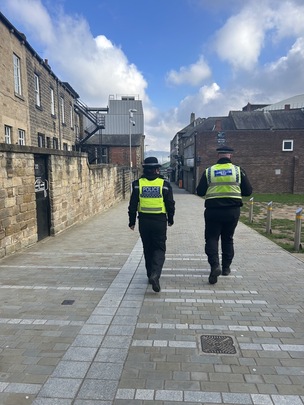A SHAKE-UP of Barnsley Council’s highways department is to be introduced as the authority struggles to improve services while government funding is being reduced with some jobs expected to go as a result.
The department has already been through a series of reshuffles as austerity has taken its toll on the cash available for their work and now a more wide-reaching review has been carried out, to be introduced from next spring.
In the short term, the council has agreed to prop up the department’s work with an extra £6m to take account of the impact of last winter’s extreme conditions on the borough’s roads, meaning jobs will be secured until that work is complete.
But beyond that, it is expected some jobs will go, though it’s hoped that new working practices will lead to improvements in the way the department fulfils its role and also the quality of communication between staff and both councillors and the public.
The department has 11 front-line jobs vacant at present and some of those will have to be filled to make up numbers needed to do the work the extra cash will fund.
When that money is exhausted, some will have to be ‘released’, councillors have been told.
The usual annual spend on roads maintenance in Barnsley is £14m, which is less than one per cent of the value of the town’s highways network, but despite that the town scores well in Government assessments, with only two per cent of carriageways regarded as needing immediate attention.
Other local authorities in the Yorkshire and Humberside region have percentages up to four times higher, councillors have been told.
Head of highways Matthew Bell told a meeting: “I have been with highways for 12 months. You have a really good network, as a whole.
“Some highways authorities not a stone’s throw from here are not carrying the same scores,” he said.
The council has been seen as performing well on some highways projects, such as the Junction 36 development at Birdwell, alongside the M1.
However, it has been acknowledged the junction changes at the former Cundy Cross roundabout had been less successful.
The report to councillors explained: “Other schemes such as Cundy Cross were managed through passing the project at each key stage from one team to another, which resulted in a lack of accountability, transparency, slippages and issues at the time of delivery, resulting in reputational risk to the service.
“Customers/road users deserve a consistent level of service.”
A further potential problem for the future is that high numbers of staff in the department are aged in their 50s, meaning many are expected to retire in the foreseeable future at a time when local authorities struggle to recruit replacements because of demand from major projects such as the HS2 rail scheme.
As a result, the council is ramping up its own apprenticeship scheme, using a ‘carousel’ system rotating candidates between different areas of work before deciding which long term opportunities would suit them best.
Details of the changes were heard by the council’s scrutiny and overview committee and chairman Coun Jeff Ennis suggested that all councillors should visit the highways department’s Smithies depot to see the new regime at first hand.





























